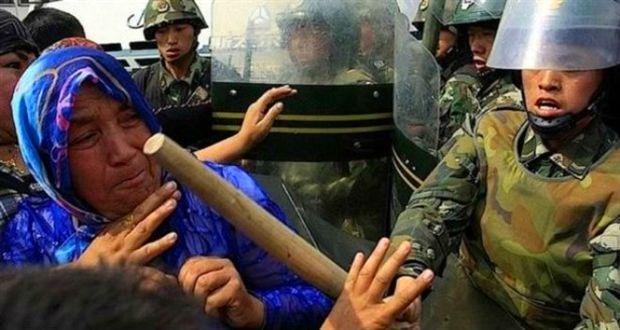News:
China has, once again, banned Ramadan in parts of the far western Xinjiang district for Muslim civil servants, students and teachers. Muslims throughout the district – which is known to have a minority population of Uyghurs – have been told not to fast during the Holy Month.
The Uyghur leader, Dilxat Raxit, sees the move as China’s attempt to control their Islamic faith and warned that the restrictions would force the Uyghur people to resist the rule of the Chinese government even more. He added, “The faith of the Uighurs has been highly politicised and the increase in controls could cause sharp resistance.”
In addition, the region of Xinjiang has held a beer festival in the run-up to the holy month of Ramadan organized by the government in what Raxit called an open provocation.
In recent years, Chinese authorities have blamed separatist Uyghurs for a string of terrorist attacks on civilian crowds and government institutions, but the group has consistently denied involvement. Activists have long-accused Beijing of exaggerating the threat as an excuse to impose restrictions.
Comment:
It is no secret that the Chinese government considers the existence of Uyghur Muslims in Xinjiang province as a threat, employing the cynical umbrella of battling extremism to justify its violent, oppressive and discriminative policies against the minority.
The aggressive stance of the Chinese government towards Islam demonstrates that remnants of the repressive communist doctrine and values that have a legacy of persecuting religious minorities still remain firmly rooted within the state. Although the ideology of communism in the world has collapsed, Uyghur women continue to face intense pressure from all directions. Not only is their right to determine when they eat and drink contested, but they are also systematically deprived of wearing basic Islamic dress as well as the infamous one child policy that has been brutally enforced in the region. The ruling party has sought periodically to stamp out the Islamic dress since taking power in 1949, first launching an atheism drive and then banning the headscarf altogether in the 1960′s and 70′s. As an ethnic minority, the Uyghurs are supposed to be exempt from the population-limiting policy. However, despite this, Uighurs who live in cities are only allowed to have a maximum of two children, while if they live in rural areas, a maximum of three children is allowed. If they exceed this limit, they are forced to have an abortion or sterilization, or are subject to other actions that can dismiss the pregnancy. The US-based Women’s Rights Without Frontiers organization that monitors forced abortion and gendercide in China stated that “In reality, they (the Uyghurs) are subject to strict population control.” It is therefore not surprising that over the years, the population growth of Uyghur Muslim has remained low.
The Chinese government is clearly desperate to inhibit the rise of Islam in East Turkestan, by conducting this open campaign against the Muslim community by using cheap enticement or fear tactics to pressure them to abandon the commands of Islam.
Written for the Central Media Office of Hizb ut Tahrir by
Aisha Hasan

